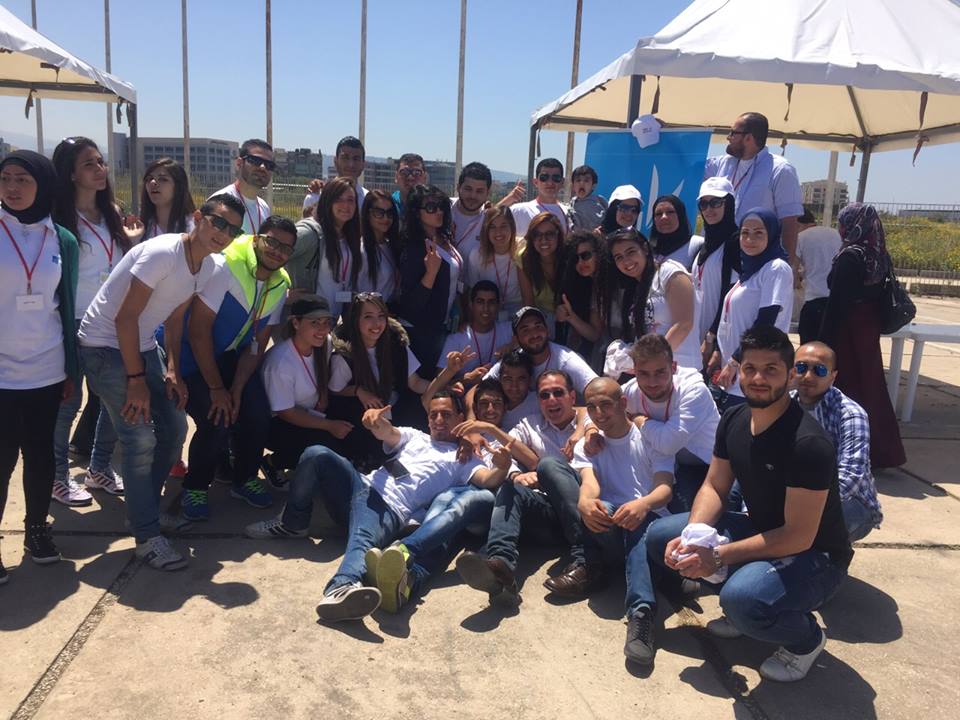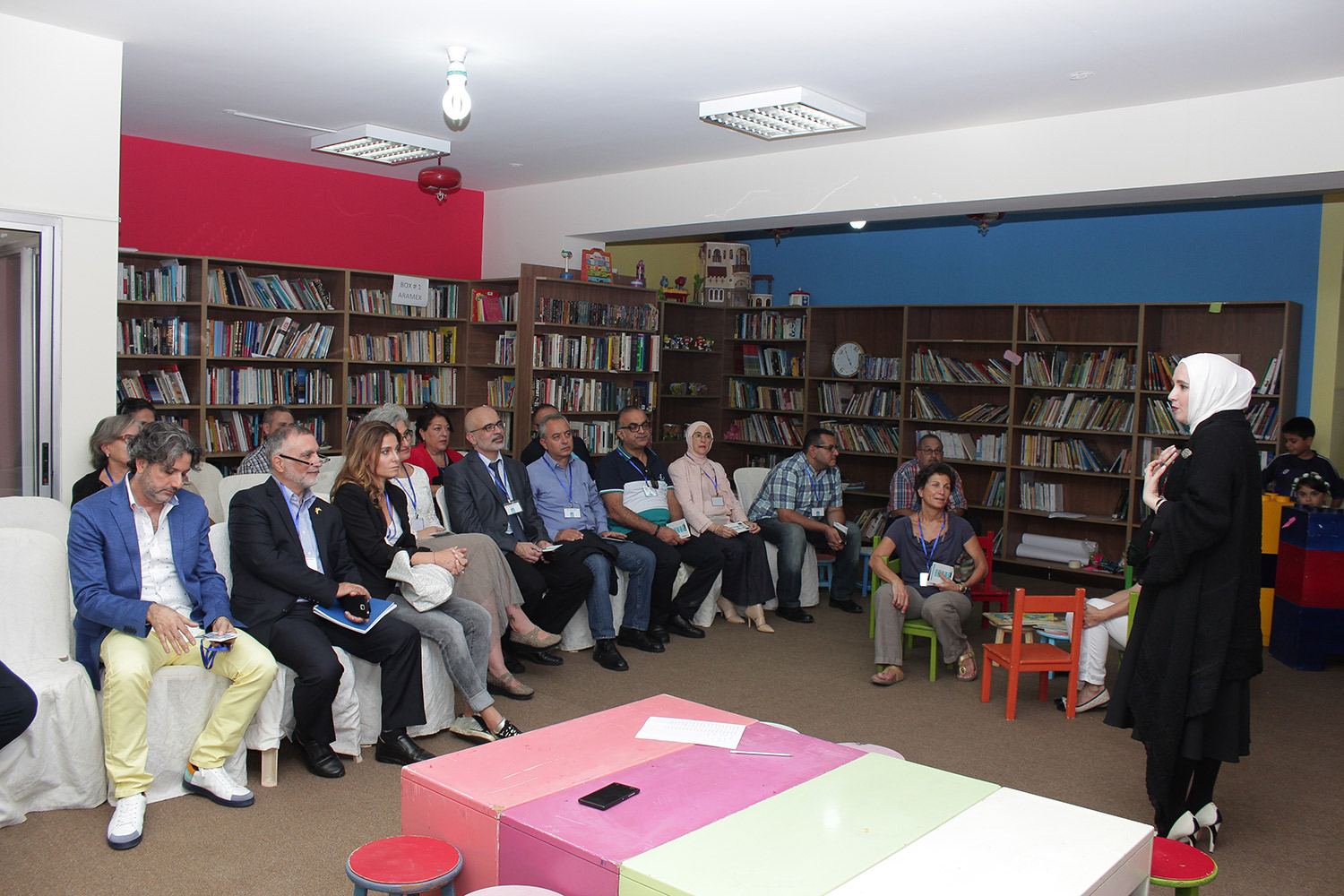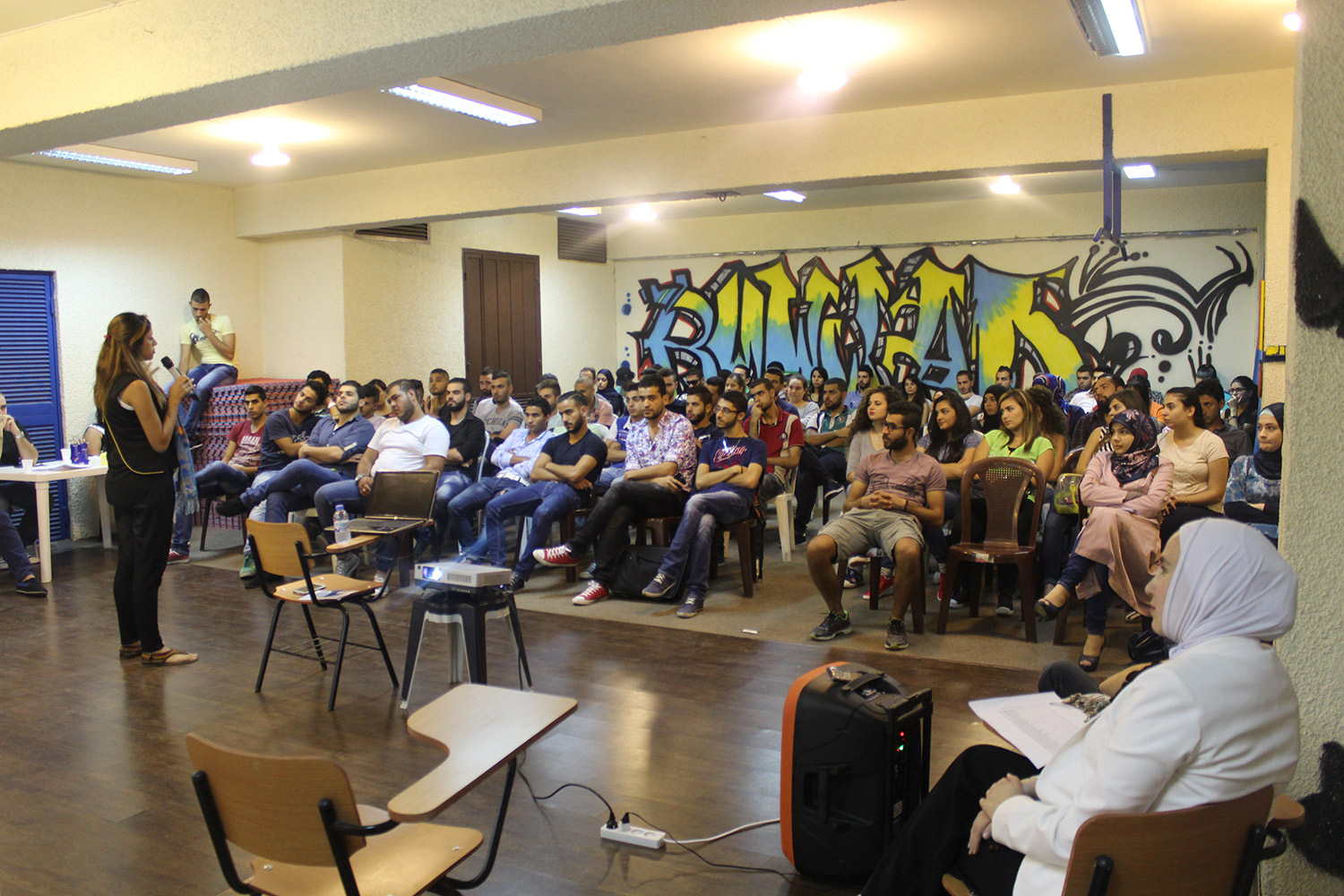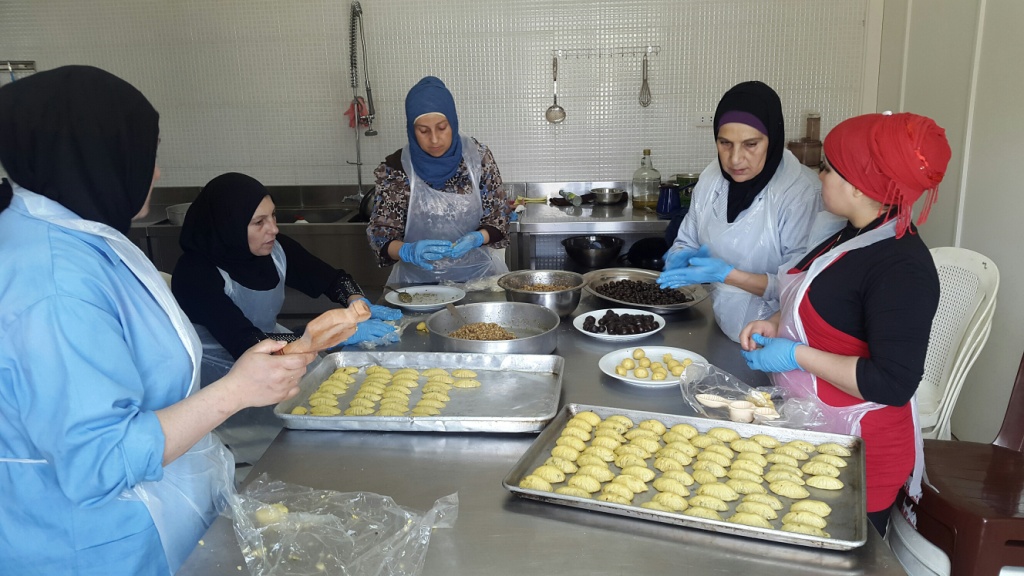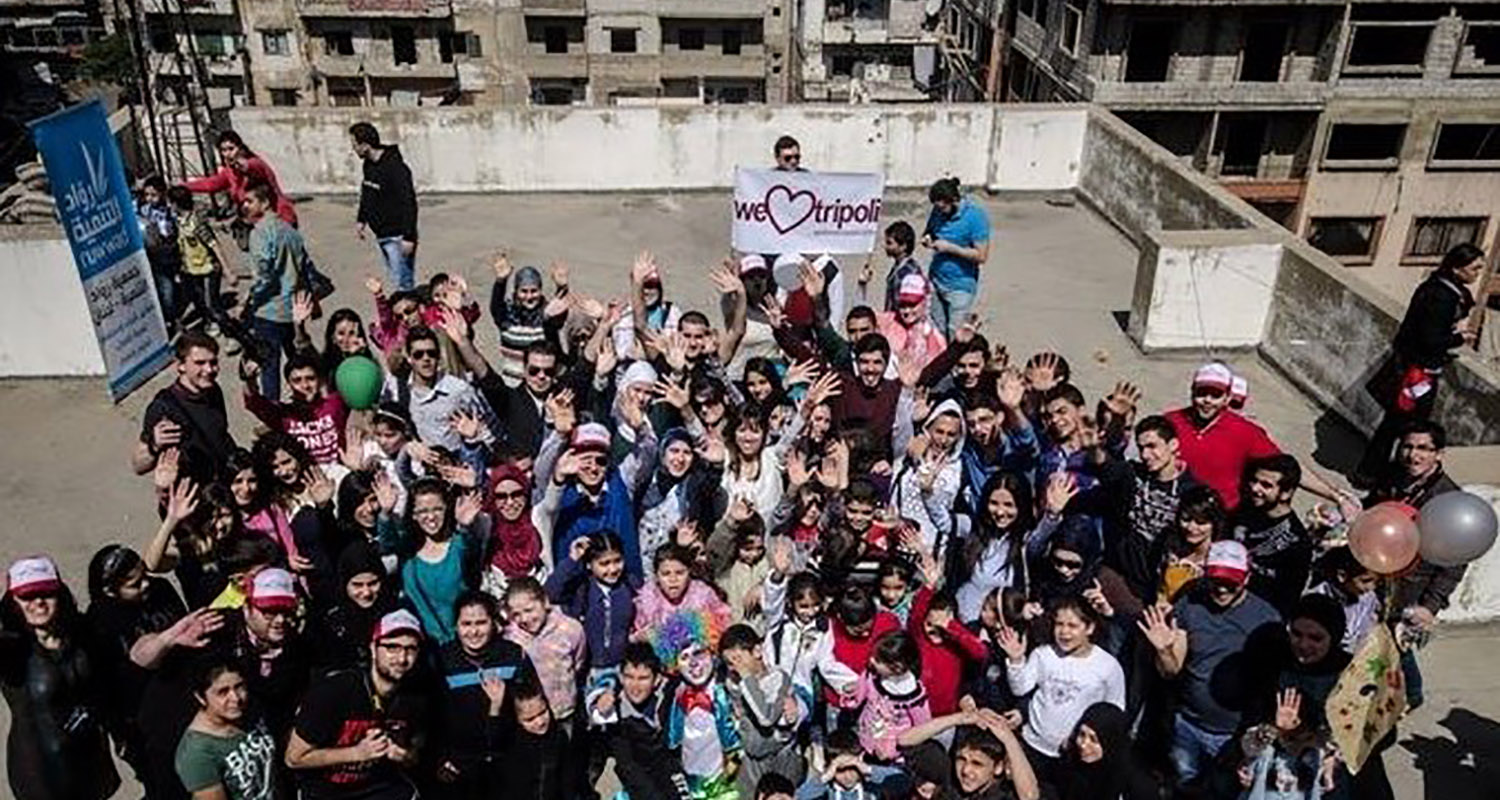Between 2011 and 2015, Ruwwad’s regional expansion took place through Aramex, as a main partner corporation, and a network of entrepreneurs. This is the story of Ruwwad Lebanon.
Hala Franjieh Fadel, an established business entrepreneur, heard about Ruwwad at one of Fadi’s social entrepreneurship talks. She visited Ruwwad in January 2012 and mobilized the foundational grant to establish a Ruwwad community center in Jabal Muhsen and Bab El-Tebbaneh areas in the north of Tripoli, Lebanon.
Initially, the Lebanon team worked remotely from another location, obtaining all necessary permits, exploring the structure of communities and introducing themselves to local leaders, while forging partnerships with relevant public and educational institutions as well as civil society organizations. By June 2012, the Youth Education and Empowerment Scholarship Fund was put in place.
In the midst of the turbulence tearing at these two poverty-stricken and marginalized neighboring communities, and in spite of the sectarian and political conflict between them, Ruwwad managed to secure a building in the street that divides the two neighborhoods, and placed an entrance on each side of the building, providing both communities with access to the center and a sense of ownership. Scholars began to do four hours of community service per week under the guidance of the Ruwwad team, mindful of the special circumstances that define the two communities while simultaneously striving to break the molds of animosity that had been cast.
Until this day, the center enabled 191 youths, giving them access to education, enrichment programs and civic engagement opportunities. Ruwwad Lebanon has become a platform for conflict resolution, peace building and bringing youths and children across sectarian divides to engage in learning, community service and entrepreneurial endeavors.
Ruwwad operates in Tripoli’s Bab El-Tabbaneh and Jabal Mohsen in the North of Lebanon. They are two poverty-stricken, marginalized neighboring communities burdened by sectarian and political strife. Jabal Mohsen is nestled on a hilltop that overlooks Bab El-Tabbaneh and the Beddawi and Mankobeen regions.
The population of Bab El-Tabbaneh stands at around 60,000, while Jabal Mohsen's is an estimated 45,000. Up to 50% of residents in the two neighborhoods are unemployed, making the population vulnerable to mobilization it times of trouble.
The two neighborhoods also suffer from widespread addiction to drugs and alcohol, child labor and child marriage. Bab El-Tabbaneh and Jabal Mohsen were prosperous regions until the flood of the 1960s caused the destruction of many buildings. The civil war soon thereafter struck Tripoli much like it did the rest of Lebanon.
Youth Organizing Program
Youth Organizing is the core program of Ruwwad, Tripoli. Scholarships are extended every year to youths from Bab El Tabbaneh and Jabal Mohsen; in return, the scholars commit to four hours of community service per week, while also benefiting from the cultural, business and leadership components within the Enrichment Program.
Since the Fund’s inception, 191 scholarships have been awarded to youths seeking university and post-secondary vocational educational programs: 80 scholarships were awarded in 2012, 53 in 2013, 27 in 2014, and 31 in 2016.
Youth Education and Enrichment Scholarship Fund
For youths to benefit from the Ruwwad scholarship they are invited to follow a well-designed process of three phases: In the first round, prospective scholars fill out application forms; in the second round, the shortlisted applicants submit an essay about a topic related to the community; in the third round, a semi-final list sit for interviews.
The scholarship fund is based on partnerships with well-known universities in Lebanon, among them Balamand University and Beirut Arab University. Most universities offer discounted tuitions to Ruwwad, taking into consideration the unstable and risky environment of Tabbaneh and Jabal Mohsen.
The Enrichment Program
The Cultural Component: The cultural “Dardashat” sessions take place through various learning mediums - literature, arts and movies. Once a month, the Center welcomes a local or regional speaker for a discussion about a topic of interest to the scholars.
The Business Component: Scholars benefit from different training workshops for the enhancement of business skills, self-confidence, environmental awareness...etc, which take place in collaboration with non-governmental organizations and certified trainers. English language instruction is conducted through the Rosetta Stone installed in Ruwwad’s computer Lab.
Child Development Program
The Program hosts 120 repeat children between the ages of six and 12. Activities commenced in late 2012, with assistance provided to children’s homework, and have since grown to cover several components:
Inquiry-based Learning
Children and youth scholars from Jabal Mohsen and Bab El-Tabbaneh were actively engaged in setting up Ruwwad’s Child Library to encourage a sense of community and shared ownership. Today the library has approximately 3500 books. As a learning incubator, the library is used for child literature, creative arts sessions and skills training. Children are always invited to use the library for research purposes, and/or leisure time reading.
Other components of the Child Program are the Sports and Gymnastics Activities organized in play courts outside the center and in Ruwwad’s fully equipped gym, under the supervision and training of a professional sports coach. Science and Robotics Sessions take place in partnership with the Little Engineer and Kids Genius, using STEM (Science, Technology, Engineering and Math) as mediums to teach robotics and industrial mechatronics.
Parental and Community Support
Academic Support sessions for children and Better Parenting sessions for mothers take place as part of the Parental and Community Support component.
School Outreach
IQRAA summer clubs use reading for pleasure to impact cognitive skills and learning while enhancing the reading and writing skills of children. 12 public school teachers from two schools (Mutawasitat Al Tabbeneh and Abi Firas Al Hamadani) have been trained on the program, which also equipped ten classes in these schools with furniture, stationary and books. At present, one month-long literacy IQRAA camps are conducted in these two public schools on a yearly basis.
Also, 300 adolescents from grades 7 and 8 from Abi Firas Al Hamadani, Takmiliyat Al Qobba and Ba'el Mohsen schools are targeted by the outreach activities through a partnership with Injaz’s “I am an entrepreneur” program.
Community Support Program
Our scholars are our primary force in community engagement and organizing. Since Ruwwad's inception in Tripoli, our youths have launched and participated in several grassroots initiatives and campaigns: the Composting and ‘Seha w Hana’ Iftar Initiatives and the “Salam w Takwa” campaign, which mobilized 1200 volunteers to help Tripoli heal its wounds after the terrorist bombings that targeted the Salam and Takwa mosques.
Because of chronic sectarian tensions in the region, Ruwwad’s scholars also receive training in problem solving and conflict resolution methods.
The Community Program includes several components:
Community Helpdesk
The Helpdesk offers services such as orientation sessions for job seekers on the job market and provides them with training that enriches their professional skills.
Women Advancement
This component includes Education and Awareness sessions for the women of both communities. It also encompasses income generation projects that offer vocational training and create job opportunities, among them ‘Atayeb Tarablos’, Ruwwad's production kitchen.
